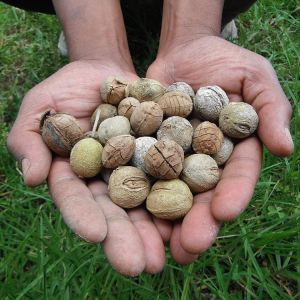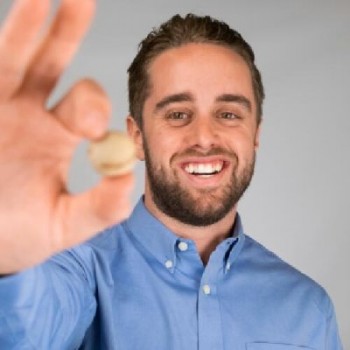Interview by Nina Angeles
- Tell us about your post-Northeastern life and how you came to be where you are today, all the way in Kenya.
 I worked for a series of start-ups, both social and otherwise, in operational roles. I was always one of the first hires at the organization. Then I sought to re-engage with something I was passionate about, and found my way to an internship in Kenya with EFK. Eventually, a unique opportunity mixed with a bit of never-let-die attitude turned my 6-month internship into a position as managing director of the business and a foreseeable future leading the company’s next stages.
I worked for a series of start-ups, both social and otherwise, in operational roles. I was always one of the first hires at the organization. Then I sought to re-engage with something I was passionate about, and found my way to an internship in Kenya with EFK. Eventually, a unique opportunity mixed with a bit of never-let-die attitude turned my 6-month internship into a position as managing director of the business and a foreseeable future leading the company’s next stages.
- What is your role at EFK? What do you enjoy most about your job?
I am Managing Director, responsible for fundraising, implementation strategy, and stakeholder engagement. I’ve always found excitement in the challenge of proving a concept or doing something that has never been done before. With EFK that is all that we are doing all the time: proving that a healthy, inclusive agribusiness industry can be made from the croton nut, which is a plentiful indigenous tree species that has no commercial value outside of what we are doing
- Can you tell us about your involvement with SEI when you were still a student at Northeastern and now as a professional?
I was aggressively involved with SEI in the early years – I worked as a co-op and teaching assistant, even hanging around a bit after graduation. I saw incredible value in what SEI did and wanted to help make sure more people got the career path-changing experience I did.
- What have been some of the challenges you’ve faced while working in the social enterprise field?
In my experience with EFK, it has been a lack of resources at the seed stage. I lived first-hand through the “pioneer’s gap” that is widely publicized when our bootstrapping team pushed our business through proof-of-concept over the past three years, often sacrificing salaries and complete focus on impact to ensure the business could progress to the next stages. After being forced to make $250k of investment money work over the 2.5 years I’ve been in Kenya, I’m happy to report that the company is in the final stages of closing over $1.5m of grant and investment to scale the project for the next 3 years, and that my team shares my consensus – that this is just the beginning of what we will achieve.
- If you had to give one piece of advice to SEI-ers who are looking for a career in social enterprise, what would it be?
Back in 2013, just before I moved to Kenya to start this journey, I published this blog that highlighted what I had learned and how I was feeling at the point in time of my career change. I believe my viewpoints have largely stayed the same.
The sector is still figuring out how it’s going to work, so there are endless ways to become a part of it. What eventually happens to you if you go down this path will largely be dictated by your attitude, willingness to sacrifice traditional expectations of success/career, and desire to see projects through. You won’t make an impact or develop a lasting career path with a short-term internship in a developing country. Perhaps at one point that was enough but now that is almost the minimum requirement to have someone take you seriously for an opportunity.
 While I still believe it is tough to carve a career in this space where (for the most part) organizations are still figuring out how to make what they want to do work, the thing I can say is that it is worth it. Sticking with your gut, doing something you’re passionate about, and finding what makes you tick, along with a role that keeps that excitement in your life (whether the next few steps into your career work out or not) is an incredibly fulfilling journey and will pay dividends far greater than any compensation your first few jobs will.
While I still believe it is tough to carve a career in this space where (for the most part) organizations are still figuring out how to make what they want to do work, the thing I can say is that it is worth it. Sticking with your gut, doing something you’re passionate about, and finding what makes you tick, along with a role that keeps that excitement in your life (whether the next few steps into your career work out or not) is an incredibly fulfilling journey and will pay dividends far greater than any compensation your first few jobs will.


